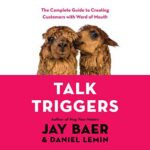Each month, I sit on a panel at the US Air Force Academy where soldiers, sailors, and airmen prepare for life as civilians. Many of the others on the panel are there to help them create a stellar resume so they can get a job. Of course, I speak to them about business ownership instead of getting a job, but some of the same rules apply. While my panel members talk about ways to relay a person’s credentials in the form of a resume, I emphasize the need to develop a powerful personal brand instead.
Personal Brand vs Resume
Many people attend college simply to get a degree so they can show future employers their credentials in what I call “status learning”. They list their job experience and credentials in their resume they provide either physically or electronically to potential employers. However, listing prior jobs and education on a resume or application form are self-reported, and as such, often contain fairy tales.
When I was on the board of a non-profit, we discovered that the executive director who had served in that capacity for many years claimed to have a degree that she never earned. Therefore, I was not surprised when I read a recent report that said according to a survey in which 4,000 HR professionals were surveyed, 85% of applicants lie on either their resume or application form.
The problem with listing your credentials on a resume is that employers today are quite dubious of what is self-reported, given the high likelihood that much of the information could be fabricated.
Moreover, when it comes to who will see the credentials, the only person that sees your resume is the person you provide a copy of your resume or CV to, such as a recruiter or hiring manager.
The likelihood that the credentials listed on a resume could be falsified, combined with the limited distribution of a resume, make a resume a very poor vehicle for getting that dream job. Moreover, hiring managers will not limit their due diligence research to just your resume and what you or your references say about you. They will in all likelihood Google and check social media to learn more about you.
Therefore, I recommend that people focus less on obtaining credentials that they can list on a resume, and instead create a personal brand that can be discovered via an internet search.
Personal Brand Goals
The goal of a personal brand is two-fold- to make people know that you exist, and to create a positive association in a person’s mind when they see or hear your name.
Too many people focus on just the awareness part of a personal brand and think only in terms of numbers, such as how many Facebook or LinkedIn friends they have. However, these kinds of metrics by themselves are a poor measure for assessing a person’s real personal brand because they do not address the second part of a personal brand- what comes to mind as soon as they hear your name or see you.
Building and creating a personal brand takes more work than simply writing a resume, but the rewards can be life-changing.
Creating a personal brand means connecting your name to a positive association with something and linking your name with being a thought leader in a particular niche.
Creating a Personal Brand
The steps required for creating a powerful personal brand are:
- Discovering your lane or forte that you want to be associated with
Find the most appropriate platform or platforms to share information authored by you or about you. - Create content or collaborate on content to demonstrate who you are.
- Create deeper relationships with other experts to share their audience.
For example, do you want to be recognized for your technical proficiency, such as being a chef? If so, find an appropriate platform like Instagram, and start posting a bunch of recipes and videos of you preparing dishes and connecting with other influencers to help spread the word.
Perhaps you want to be associated with being an expert in user interface design or Search Engine Optimization (SEO)? If so, use a different and more appropriate platform such as LinkedIn or create a blog and write some informational and informative posts. You could even write a book to demonstrate that you are an expert. You can self-publish a book using Amazon’s Kindle Direct Publishing or Smashwords with a minimal amount of effort. Finally, reach out to other experts and comment, share and collaborate to share your personal brand with their audience.
In this way, if a prospect or an employer is looking for someone with your skill set, they will either organically stumble across your name when they perform an internet search or you can direct them to your content and associations in an interview. Such associations will go a long way toward establishing your expertise, more so than attending a college or online course just so you can list a bunch of credentials on your resume.
This holds double if your plans are to become a business owner, because nobody cares about your resume as an entrepreneur. What the prospect cares about is not what school or course you took, but your personal brand. When they see or hear your name, do the words trustworthy, generous, or intelligent come to mind?
Conclusion
The irony is that jobs that people would kill for are never filled by a company going through a stack of resumes looking for a candidate with the best fit. These jobs are filled by conducting a search or mining the personal contacts of other employees. A word-of-mouth referral from someone often trumps a resume.
More often than not, many dream jobs are filled by a company hiring a head-hunting firm or doing their own searches using a platform like LinkedIn and scalping the candidate by making them a better offer. How do these recruiters and headhunters find these candidates? Not by discovering them in a stack of resumes, but by conducting an active search, usually through Google. Today, I like to say that,
“Google is the new resume.”
If you Google my name, “Steven Imke”, you will see dozens of search results identifying many of my achievements and associations. What results do you get when you Google your name?
What is your personal brand and how will you create a more powerful one?












